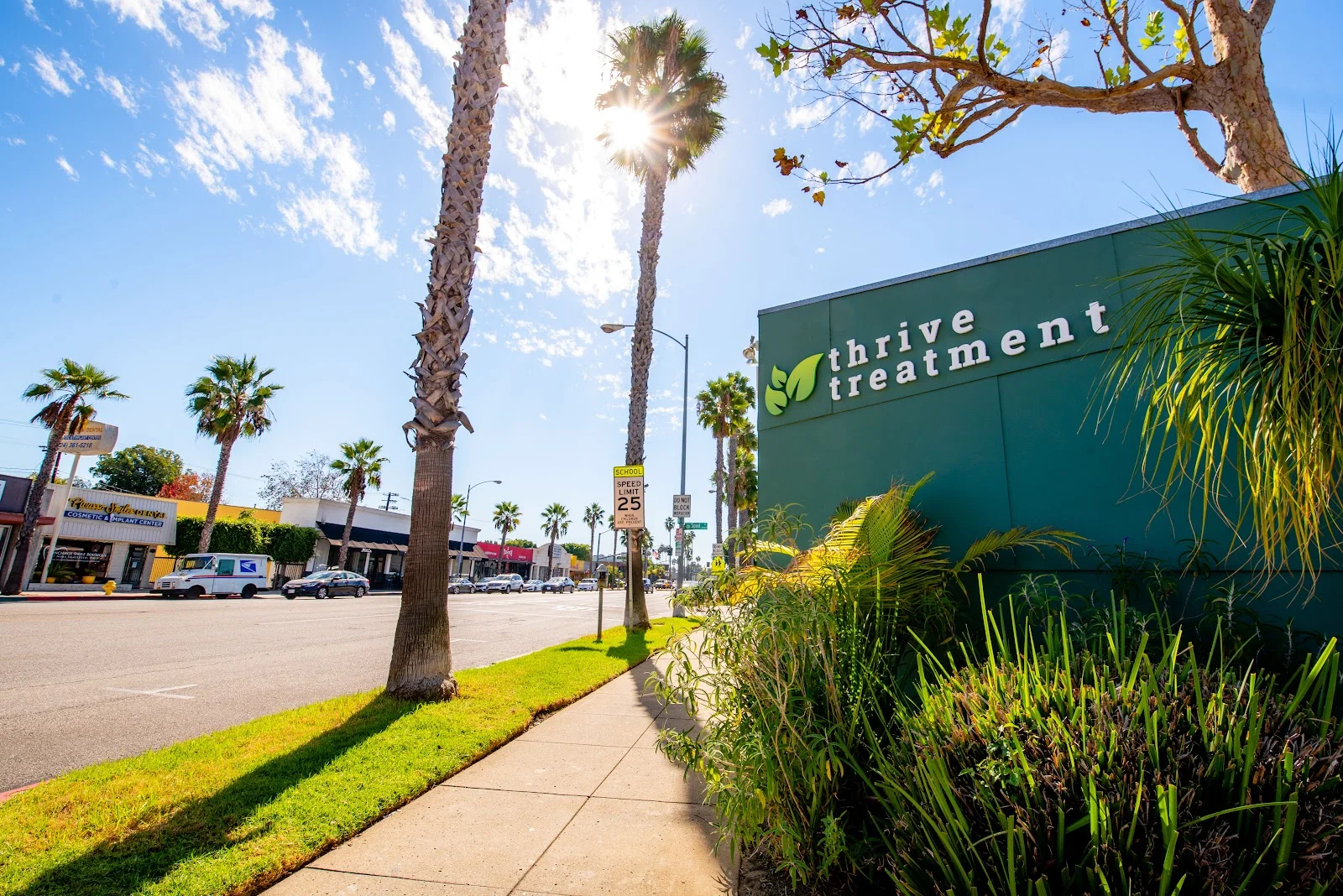Thrive Treatment Information
Treatment
Who We Treat
- Young Adults (18–25)
- Male and Female
Treatment Focus
- Co-Occurring Disorders
- Drug Addiction
- Chronic Relapse
- Alcohol
Approaches
- 12-Step-Based
- Individual Treatment
- Evidence-Based
- Twelve Step
- Family Therapy
- Group Therapy
- Holistic
- Cognitive Behavioral Therapy (CBT)
- Dialectical Behavior Therapy (DBT)
- Rational Emotive Behavior Therapy (REBT)
- 1-on-1 Counseling with Clinical Psychologist
- Life Skills Training
- Relapse Prevention Counseling
Conditions We Treat
- Depression
- Anxiety
- Bipolar Disorder
- Post Traumatic Stress Disorder (PTSD)
- Obsessive Compulsive Disorder (OCD)
- Grief & Loss
- Trauma
- Codependency
- Grief and Loss
- Stress
- Bipolar
- Co-Occurring Disorders
Substances We Treat
- Benzodiazepines
- Prescription Drugs
- Chronic Relapse
- Alcohol
- Cocaine
- MDMA/Ecstasy
- Nicotine
- Ecstasy
- Marijuana/Cannabis
Languages
- English
Aftercare
- Intensive Outpatient Program
- Support Meetings (on-site)
- Alumni Events & Get-Togethers
Level of Care
- Outpatient
- Intensive Outpatient Program (IOP)
- Day Treatment
Experience
On-Site Amenities
- Access to Nature
Personal Amenities
- Air-Conditioned Rooms
On-Site Activities
- Adventure Outings
Special Considerations
- Young Adults Program
Accreditations
-
The Joint Commission
The Joint Commission accreditation for addiction and behavioral health signifies that a facility has met rigorous standards in patient care, treatment, and safety. This recognition assures patients and professionals of the facility's commitment to providing high-quality, evidence-based care in the fields of addiction and behavioral health, fostering trust and confidence in their services.

Additional Locations
Thrive Treatment Accepts The Following Insurance Plans
Find the best treatment options. Call our free and confidential helpline today!


















